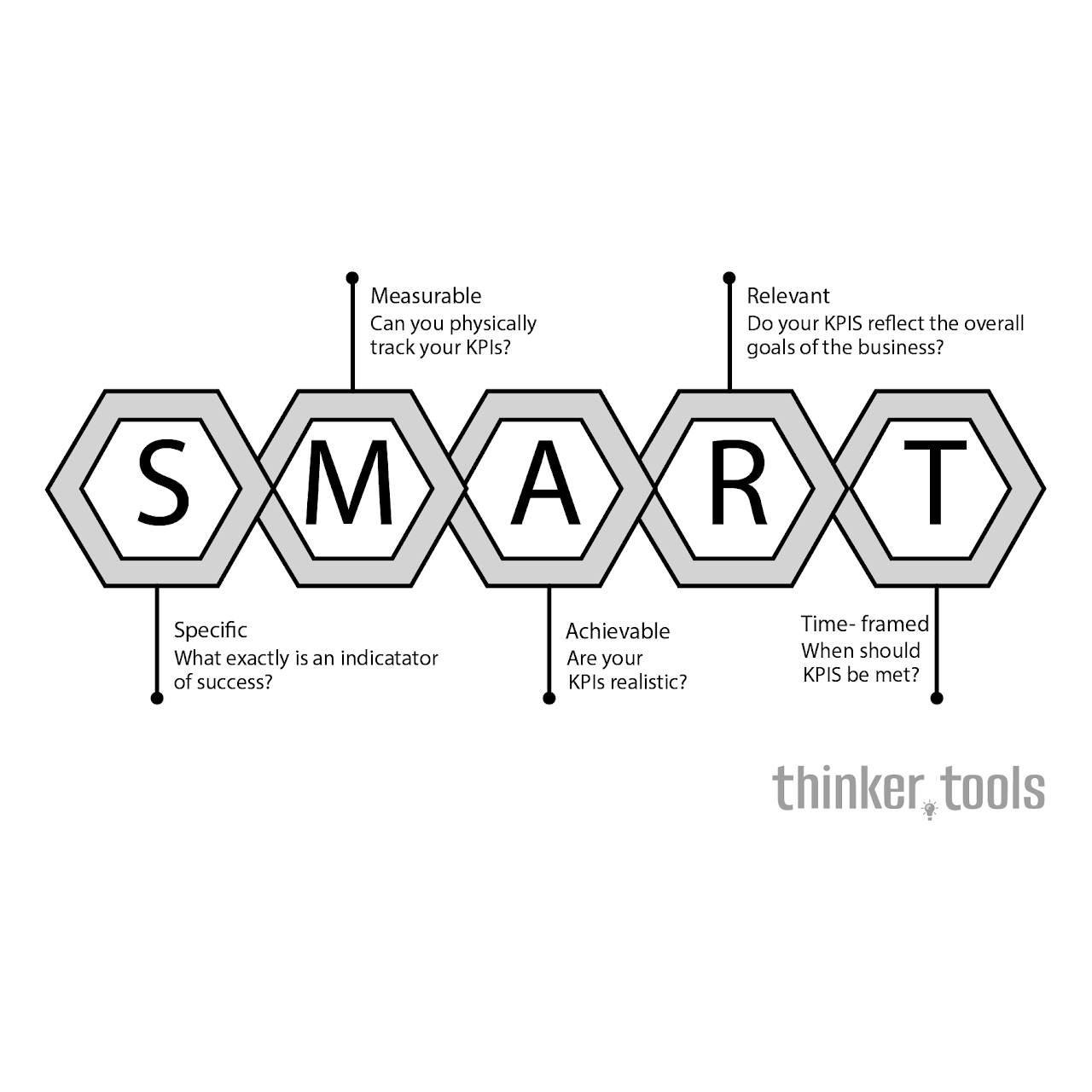
What are SMART Goals?
SMART is an acronym that defines the five essential characteristics of well-crafted goals:
- Specific: Clear and well-defined, leaving no ambiguity
- Measurable: Quantifiable to track progress and know when you've succeeded
- Achievable: Realistic and attainable given your resources and constraints
- Relevant: Aligned with your broader objectives and values
- Time-bound: Having a clear deadline or timeframe
When a goal meets all five criteria, it transforms from a wish into a roadmap.
The History and Origin
The SMART criteria were first introduced by George T. Doran in a 1981 article titled "There's a S.M.A.R.T. Way to Write Management's Goals and Objectives." Doran, a consultant and former corporate planner for Washington Water Power Company, created this framework to help businesses move beyond vague corporate objectives. Since then, SMART goals have become one of the most widely adopted goal-setting methodologies across business, education, healthcare, and personal development.
How to Use SMART Goals: Step by Step
Step 1: Start with a General Goal
Begin with what you want to achieve in broad terms. This is your starting point, not your end point.
Example: "I want to get healthier"
Step 2: Make it Specific
Add detail to eliminate ambiguity. Answer the five W's:
- What do I want to accomplish?
- Why is this goal important?
- Who is involved?
- Where is it located?
- Which resources or limits are involved?
Refined: "I want to improve my cardiovascular health by establishing a regular running routine"
Step 3: Make it Measurable
Add concrete criteria for measuring progress. This could be:
- Numbers (revenue, weight, distance)
- Percentages (growth rate, completion rate)
- Frequency (daily, weekly, monthly)
Refined: "I want to run 5 kilometers without stopping"
Step 4: Ensure it's Achievable
Assess whether the goal is realistic given your current situation, resources, and constraints. Stretch yourself, but stay grounded in reality.
Consider:
- Do I have the necessary resources?
- Have others achieved this before?
- What obstacles might I face?
Refined: "I want to run 5 kilometers without stopping (currently, I can run 1 kilometer)"
Step 5: Confirm it's Relevant
Ensure this goal aligns with your broader objectives and current life priorities. Ask:
- Does this matter to me?
- Is this the right time?
- Does it align with my other goals?
- Is it worthwhile?
Step 6: Make it Time-bound
Set a realistic deadline that creates urgency without causing undue stress.
Final SMART Goal: "I will run 5 kilometers without stopping within 12 weeks by following a structured couch-to-5K training program, running three times per week"
Practical Examples
Example 1: Career Development
Vague Goal: "Get better at public speaking"
SMART Goal: "Deliver 6 professional presentations to audiences of 20+ people by December 31st, receiving an average feedback score of 4.0 or higher out of 5.0, by joining Toastmasters and practicing twice monthly"
Example 2: Financial Planning
Vague Goal: "Save more money"
SMART Goal: "Save $5,000 for an emergency fund by December 31st by automatically transferring $417 from each monthly paycheck into a high-yield savings account"
Example 3: Business Growth
Vague Goal: "Grow the business"
SMART Goal: "Increase monthly recurring revenue from $50,000 to $75,000 by June 30th through launching two new product features and implementing a customer referral program"
Example 4: Learning and Development
Vague Goal: "Learn Spanish"
SMART Goal: "Achieve conversational Spanish proficiency (B1 level) by March 31st by completing 30 minutes of daily practice on language apps and attending weekly conversation classes"
Benefits and Life Improvements
Clarity and Focus
SMART goals eliminate confusion and provide crystal-clear direction. You know exactly what you're working toward and can make daily decisions that support your objective.
Increased Motivation
Specific, measurable goals create a sense of progress that fuels motivation. Each milestone reached provides a psychological boost to continue.
Better Resource Allocation
When goals are specific and time-bound, you can allocate time, energy, and resources more effectively, avoiding waste on activities that don't contribute to your objectives.
Accountability
SMART goals make it impossible to deceive yourself about progress. The measurable component provides objective feedback on whether you're on track.
Higher Success Rates
Research consistently shows that people who set SMART goals are significantly more likely to achieve them compared to those with vague objectives.
Reduced Overwhelm
Breaking down big aspirations into SMART goals makes them less daunting and more manageable, reducing anxiety and procrastination.
Continuous Improvement
The process of setting and reviewing SMART goals creates a feedback loop for continuous personal and professional development.
Transform Your Goal Setting Today
The beauty of SMART goals lies in their simplicity and universality. Whether you're planning your career trajectory, improving your health, building a business, or pursuing personal growth, this framework provides the structure needed for success. The difference between where you are and where you want to be often comes down to the quality of your goals.
Start today by taking one important aspiration and running it through the SMART filter. Be ruthless about specificity, honest about achievability, and committed to the timeline. Remember, a goal without a plan is just a wish, but a SMART goal is a commitment to your future self. Your dreams deserve more than hope—they deserve a framework that turns them into reality.